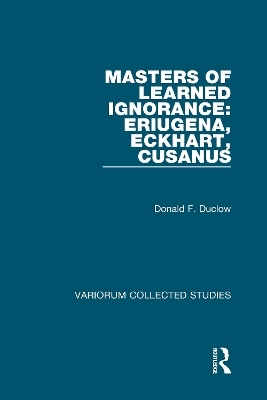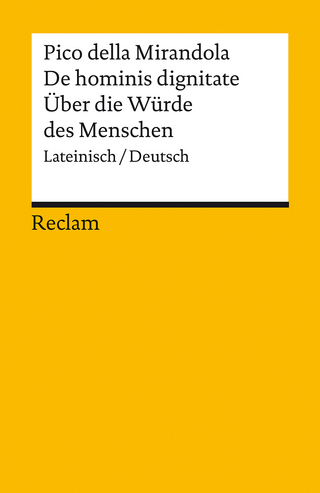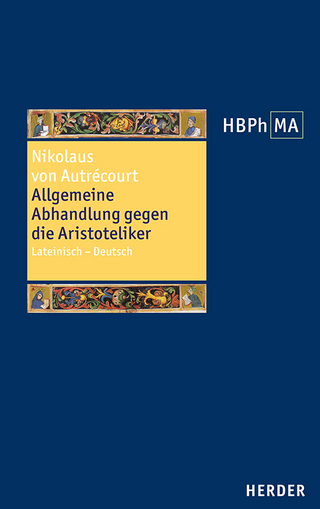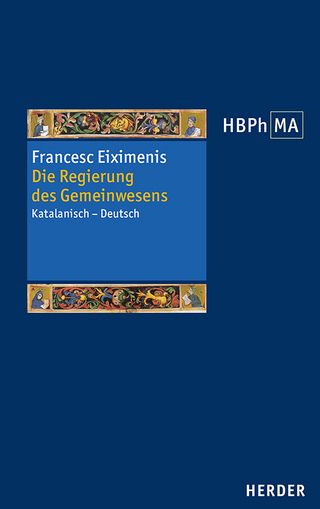
Masters of Learned Ignorance: Eriugena, Eckhart, Cusanus
Ashgate Publishing Limited (Verlag)
978-0-86078-995-6 (ISBN)
The medieval Christian West's most radical practitioners of a Neoplatonic, negative theology with a mystical focus are John Scottus Eriugena, Meister Eckhart and Nicholas Cusanus. All three mastered what Cusanus described as docta ignorantia: reflecting on their awareness that they could know neither God nor the human mind, they worked out endlessly varied attempts to express what cannot be known. Following Pseudo-Dionysius the Areopagite, they sought to name God with symbolic expressions whose negation leads into mystical theology. For within their Neoplatonic dialectic, negation moves beyond reason and its finite distinctions to intellect, where opposites coincide and a vision of God's infinite unity becomes possible. In these papers Duclow views these thinkers' efforts through the lens of contemporary philosophical hermeneutics. He highlights the interplay of creativity, symbolic expression and language, interpretation and silence as Eriugena, Eckhart and Cusanus comment on the mind's work in naming God. This work itself becomes mystical theology when negation opens into a silent awareness of God's presence, from which the Word once again 'speaks' within the mind - and renews the process of creating and interpreting symbols. Comparative studies with Gregory of Nyssa, Pseudo-Dionysius, Anselm and Hadewijch suggest the book's wider implications for medieval philosophy and theology.
Donald F. Duclow is Professor Emeritus of Philosophy at Gwynedd-Mercy College, USA.
Contents: Preface; Introduction: Pseudo-Dionysius, John Scotus Eriugena, Nicholas of Cusa: an approach to the hermeneutic of the divine names. Part 1 John Scottus Eriugena: Divine nothingness and self-creation in John Scotus Eriugena; Nature as speech and book in John Scotus Eriugena; Dialectic and christology in Eriugena's Periphyseon; Isaiah meets the Seraph: breaking ranks in Dionysius and Eriugena?; Denial or promise of the tree of life? - Eriugena, Augustine and Genesis 3:22b; Virgins in paradise: deification and exegesis in Periphyseon V, (co-authored with Paul A. Dietrick); Hell and damnation in Eriugena, (co-authored with Paul A. Dietrick). Part 2 Meister Eckhart: Hermeneutics and Meister Eckhart; Meister Eckhart on the Book of Wisdom: commentary and sermons; 'Whose image is this?' in Eckhart's Sermones; 'My suffering is God': Meister Eckhart's Book of Divine Consolation; The hungers of Hadewijch and Eckhart. Part 3 Nicholas of Cusa: Nicholas of Cusa's 'conjectural' neoplatonism; The dynamics of analogy in Nicholas of Cusa; The analogy of the word: Nicholas of Cusa's Theory of Language; Gregory of Nyssa and Nicholas of Cusa: infinity, anthropology and the Via Negativa; Anselm's Proslogion and Nicholas of Cusa's Wall of Paradise; Nicholas of Cusa in the margins of Meister Eckhart: codex Cusanus 21; Mystical theology and intellect in Nicholas of Cusa. Index.
| Erscheint lt. Verlag | 28.10.2006 |
|---|---|
| Reihe/Serie | Variorum Collected Studies |
| Sprache | englisch |
| Maße | 156 x 234 mm |
| Gewicht | 612 g |
| Themenwelt | Geisteswissenschaften ► Philosophie ► Philosophie des Mittelalters |
| Geisteswissenschaften ► Religion / Theologie | |
| ISBN-10 | 0-86078-995-0 / 0860789950 |
| ISBN-13 | 978-0-86078-995-6 / 9780860789956 |
| Zustand | Neuware |
| Haben Sie eine Frage zum Produkt? |
aus dem Bereich


